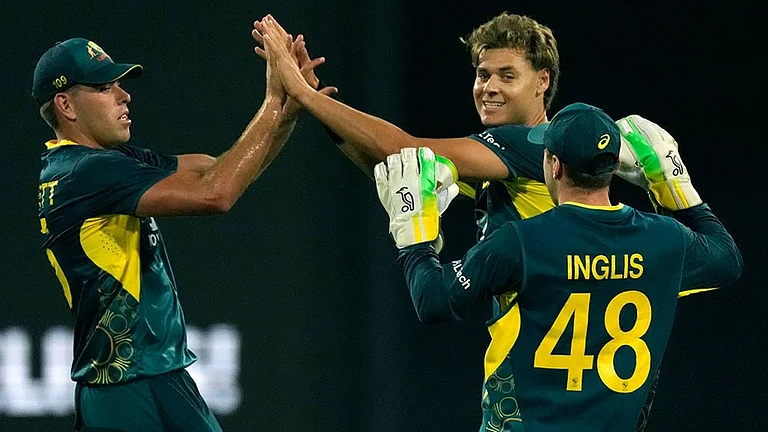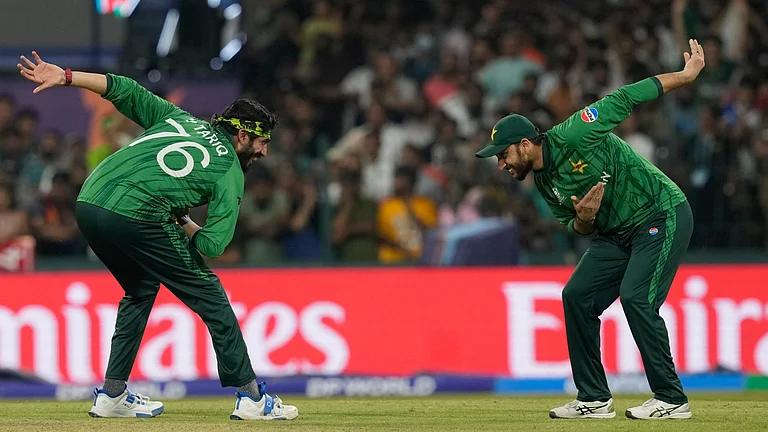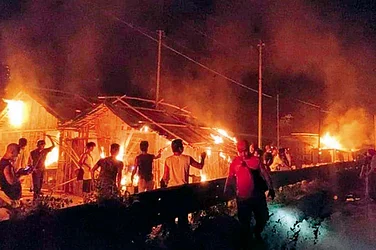Congratulatory and thanksgiving messages spouted out following the BJP’s “historic” victory in the first major election in Ladakh since the region was made a Union territory in August last year. The party was a pre-poll favourite and no political pundit would have predicted anything less than a land-sweeper considering the joy that ran through this dizzyingly beautiful land after it was hived off Jammu and Kashmir in a sweeping decision a year ago. But any hope of winning all 26 seats in the Ladakh Autonomous Hill Development Council (LAHDC) in Leh turned out to be thinner than the region’s rarefied air when the results came on October 26. The BJP won 15 seats, Congress nine and two went to independents.
The BJP retained power in the council, but fell two seats short of its 2015 tally of 17. Party leaders hailed the victory as the people’s mandate to the abrogation of Article 370. They also congratulated the BJP’s Ladakh unit. But the contest wasn’t between the local leaderships of the BJP and Congress, which had four seats in 2015, says former J&K minister Rigzin Jora. “We were contesting against the government of India and its might. Four Union ministers camped here. We didn’t end up badly,” the Congress leader sums up the elections. The National Conference and PDP did not contest, while the Aam Aadmi Party couldn’t score on debut.
The BJP campaigned intensively with Union ministers, while the Congress depended solely on its local leadership. “The ministers flew on helicopters…they were everywhere. I couldn’t even campaign in Nobra Valley, where the BJP got all five seats,” says Jora and declares his party’s next agenda—ask Centre to extend constitutional safeguards under the Sixth Schedule to Ladakh. “We will fight for it,” he asserts.
Independent candidate Konchok Stazin from Chushul was surprised by the verdict considering “the anger” in Leh against the BJP. The people who were overjoyed with Ladakh becoming a separate Union territory were apprehensive of “outsiders” overrunning their land, with the possibility of the Centre tweaking laws that prohibit non-Ladakhis from buying property in the region. In November last year, Ramon Magsaysay Award winner Sonam Wangchuk asked if Union territory was granted to exploit Ladakh’s resources on the lines of China using Tibet. The election results didn’t reflect the anger or fear, says Konchok, “but the BJP will have a strong Opposition now”. Things might hot up if the Centre delays adding Ladakh to the Sixth Schedule, which will protect it from the Centre’s notifications—suchlike the one issued on October 27 that paves the way for any Indian citizen to own land in J&K.
Konchok was with the BJP before and was sidelined because he told things about the recent Chinese incursions that many didn’t like. He says, “They have entered deep inside Chushul and no one is talking about it”.
The LHDC in Leh was constituted in accordance with the Ladakh Autonomous Hill Development Council Act of 1995 during P.V. Narasimha Rao’s rule, and the first election was held in 1995. The Congress swept the polls thrice, while Ladakh Union Territorial Front won in 2005. During Mufti Mohammad Sayeed’s PDP rule in J&K in 2003, a similar council was formed for Kargil district.
By Naseer Ganai in Srinagar


























